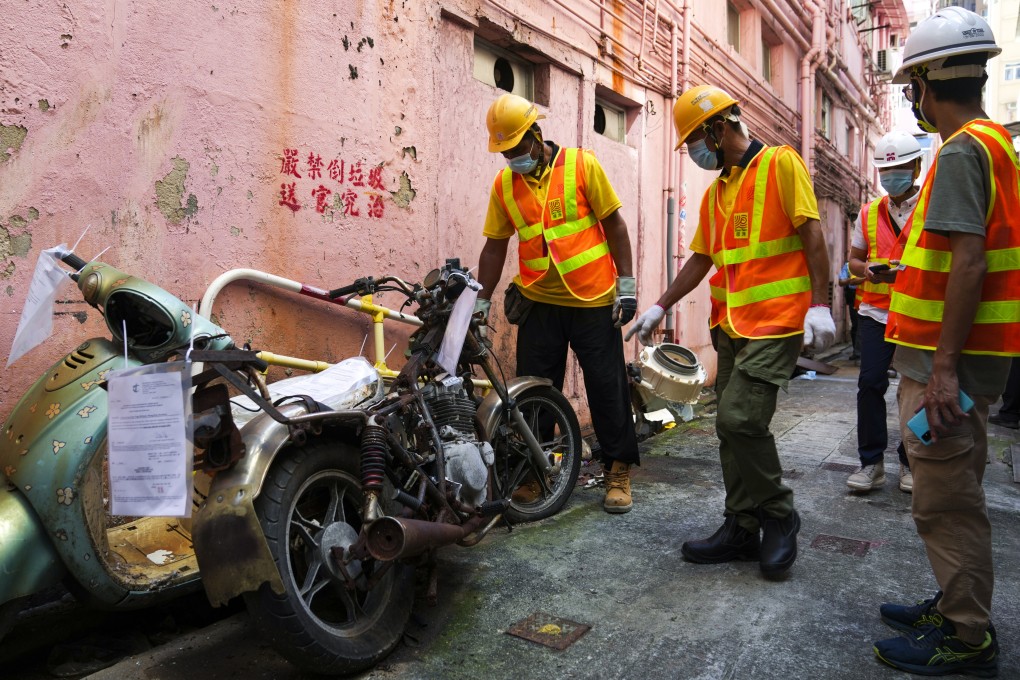Editorial | Untangle the red tape to solve issues that are staring us in the face
- The problem of vehicles being abandoned in back alleys has been known about for decades but bureaucratic buck-passing means little has been done to punish the perpetrators

Some long-standings problems tend to be forgotten until they are thrust into the public spotlight again. Vehicles left abandoned in back alleys is the latest example. As if it were a shocking new phenomenon, the issue was played up by a top official during a clean-up campaign by the new Hong Kong government last month in the wake of the prolonged Covid-19 pandemic. Belated as it is, the crackdown against this practice of abandoning vehicles is welcome.
The move, however, would have been unnecessary had the departments concerned done their jobs properly in the first place. The problem was further put into perspective in a report by the Ombudsman. It was found that the authorities focused more on getting rid of the vehicles rather than holding offenders accountable. More than 1,600 such vehicles have been removed from government land since 2021. But there were only eight prosecutions over the past two decades, as low conviction rates prompted the authorities to stop collecting evidence and taking legal action since 2007, according to the watchdog.
The problem is compounded by red tape across departments. The Transport Department has cancelled the registration of 8,540 motorcycles and 68,521 private cars over the years, but it did not know the status and whereabouts of the vehicles, making prosecutions difficult. Investigations showed there was a two-year vacuum in law enforcement after the Lands Department had twice revised its internal guideline in 2018 and 2019 to refer abandoned vehicle cases to the police and the Highways Department. But the departments were not directly notified and had not accepted the referrals.
The problem of abandoned vehicles is not new. The Post received complaints about this as early as in the 1990s. Lawmakers also pressed for more vigorous enforcement action at the time. The Audit Commission weighed in with an investigation some years ago, again to no avail. Problems that straddle across the jurisdictions of different departments can easily fall through the cracks of bureaucracy and become the concerns of no one. It is a classic example of how a relatively minor offence can snowball into a major issue that eventually warrants intervention at the top level. Even with a commitment now to plug the loophole by tightening the relevant law, it is not expected to take effect until early 2024.
There is evidence aplenty that many long-standing problems are aggravated by unclear jurisdiction and a buck-passing culture across officialdom. Hopefully, the determination to fix the problem of abandoned vehicles is just the first of many more moves by the new administration to tackle issues that call for better coordination and enforcement actions.
